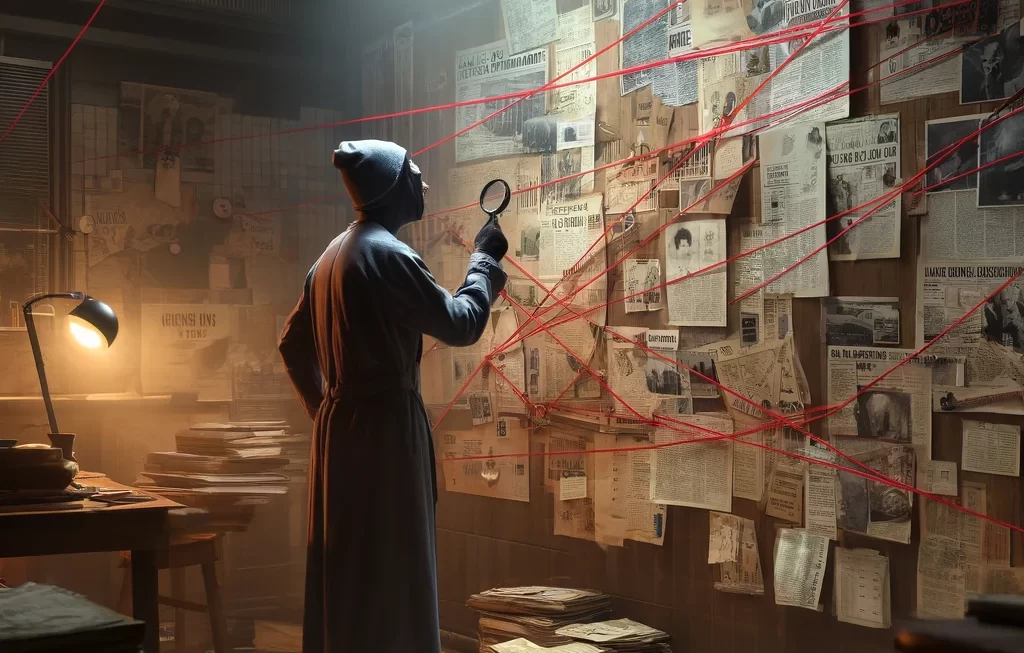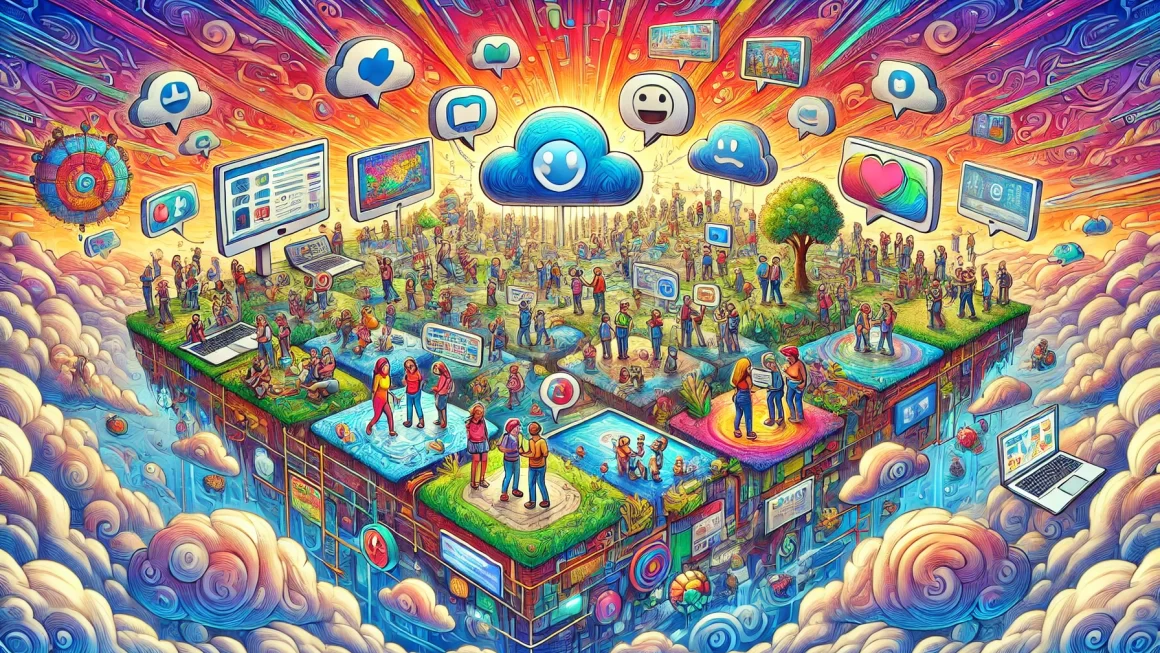In our ongoing exploration of dark psychology, our previous article delved into “Manipulative Behaviors in Online Dating,” highlighting the subtle art of emotional exploitation in the digital romance arena. If you missed it, catch up here.
Today, we venture deeper into the shadowy realms of the mind with a look at conspiracy theories—those alluring webs of suspicion and intrigue that captivate the imagination of so many. Conspiracy theories aren’t just fodder for late-night chats or the plotlines of thriller movies; they are a fascinating psychological phenomenon that reveals much about human nature.
What Drives People to Believe in Conspiracy Theories?
Conspiracy theories provide simple answers to complex questions. In a world brimming with uncertainty, these theories offer a sense of understanding and control. They simplify the chaos, attributing intricate societal or natural phenomena to the actions of a few powerful individuals or organizations.
For example, consider the moon landing conspiracy. Despite overwhelming evidence to the contrary, some believe that the moon landings were staged by the U.S. government. Why? For those individuals, the idea that such a monumental event could be a fabrication feeds into a broader narrative of distrust and skepticism towards authority.
The Role of Social Identity and Community
Believing in conspiracy theories can also fulfill a need for belonging. These beliefs often form the basis of tight-knit communities where members feel understood and valued. Within these circles, sharing a common belief in a conspiracy can strengthen bonds and provide a shared identity.
Take, for instance, the Flat Earth theory. Beyond the scientific arguments, the community aspect plays a significant role. Flat Earthers come together in forums, conferences, and social media platforms, where they reinforce each other’s beliefs and build a network of relationships based on this shared worldview.
Cognitive Biases and Conspiracy Theories
Cognitive biases also play a crucial role in the acceptance of conspiracy theories. Confirmation bias, for instance, leads individuals to favor information that confirms their preexisting beliefs and ignore contradictory evidence. This bias ensures that once a conspiracy theory takes root, it can be incredibly resistant to change.
An example of this is seen in the widespread belief in the “New World Order” conspiracy. Proponents will often interpret global political events as evidence supporting this theory, ignoring more plausible, but mundane explanations.
The Dangers of Conspiracy Theories
While some conspiracy theories are relatively harmless, others can have serious social consequences. They can fuel distrust, discrimination, and even violence. The belief that a particular group is controlling the world, such as in some anti-Semitic conspiracy theories, can and has led to acts of violence and hate crimes.
Conclusion
Understanding the psychological underpinnings of conspiracy theories helps us appreciate not just why such beliefs are appealing and persistent, but also how they can be challenged. Recognizing the interplay of emotional needs, social influences, and cognitive biases is key to addressing the spread of harmful conspiracies and fostering a more informed public discourse.
As we continue our series on dark psychology, stay tuned for our next article, “The Psychological Impact of Rumors and Gossip,” where we will explore how misinformation can shape public opinion and affect personal relationships.




